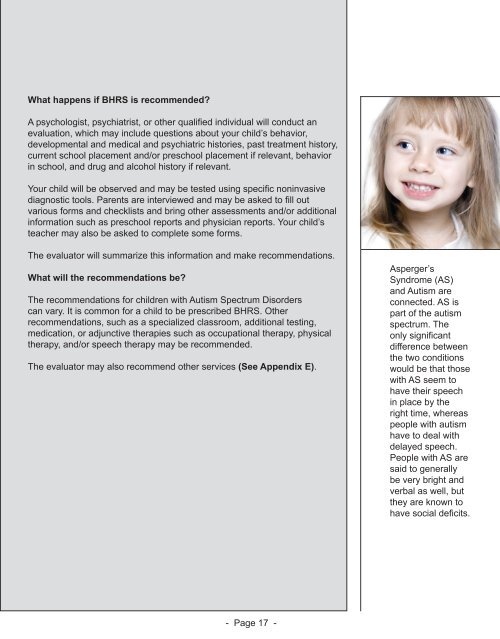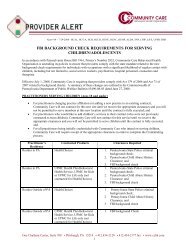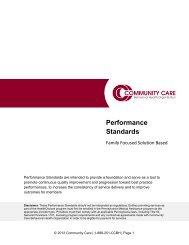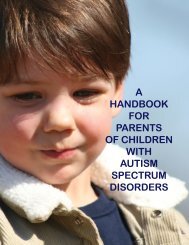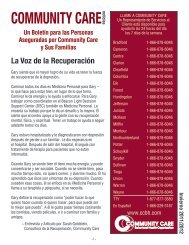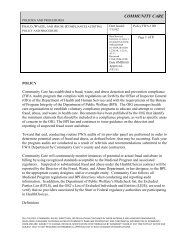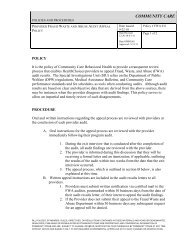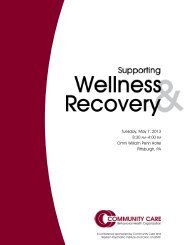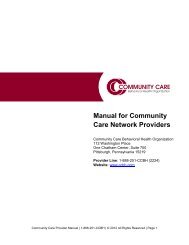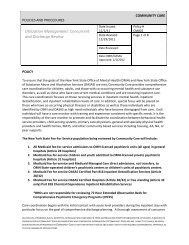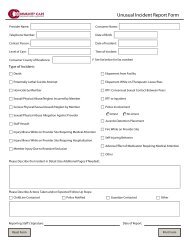a handbook for parents of children with autism spectrum disorders
a handbook for parents of children with autism spectrum disorders
a handbook for parents of children with autism spectrum disorders
You also want an ePaper? Increase the reach of your titles
YUMPU automatically turns print PDFs into web optimized ePapers that Google loves.
What happens if BHRS is recommended?<br />
A psychologist, psychiatrist, or other qualified individual will conduct an<br />
evaluation, which may include questions about your child’s behavior,<br />
developmental and medical and psychiatric histories, past treatment history,<br />
current school placement and/or preschool placement if relevant, behavior<br />
in school, and drug and alcohol history if relevant.<br />
Your child will be observed and may be tested using specific noninvasive<br />
diagnostic tools. Parents are interviewed and may be asked to fill out<br />
various <strong>for</strong>ms and checklists and bring other assessments and/or additional<br />
in<strong>for</strong>mation such as preschool reports and physician reports. Your child’s<br />
teacher may also be asked to complete some <strong>for</strong>ms.<br />
The evaluator will summarize this in<strong>for</strong>mation and make recommendations.<br />
What will the recommendations be?<br />
The recommendations <strong>for</strong> <strong>children</strong> <strong>with</strong> Autism Spectrum Disorders<br />
can vary. It is common <strong>for</strong> a child to be prescribed BHRS. Other<br />
recommendations, such as a specialized classroom, additional testing,<br />
medication, or adjunctive therapies such as occupational therapy, physical<br />
therapy, and/or speech therapy may be recommended.<br />
The evaluator may also recommend other services (See Appendix E).<br />
Asperger’s<br />
Syndrome (AS)<br />
and Autism are<br />
connected. AS is<br />
part <strong>of</strong> the <strong>autism</strong><br />
<strong>spectrum</strong>. The<br />
only significant<br />
difference between<br />
the two conditions<br />
would be that those<br />
<strong>with</strong> AS seem to<br />
have their speech<br />
in place by the<br />
right time, whereas<br />
people <strong>with</strong> <strong>autism</strong><br />
have to deal <strong>with</strong><br />
delayed speech.<br />
People <strong>with</strong> AS are<br />
said to generally<br />
be very bright and<br />
verbal as well, but<br />
they are known to<br />
have social deficits.<br />
- Page 17 -


